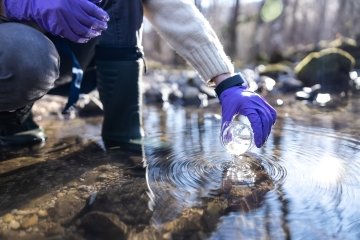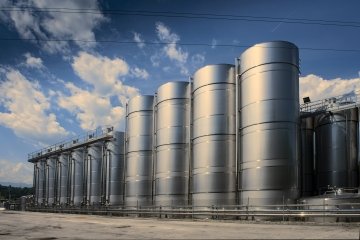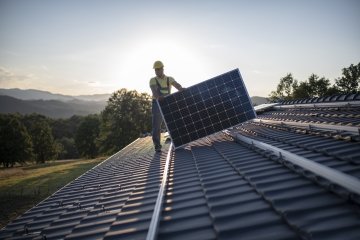Cleantech
Greener
future
Canada offers the ideal combination of skilled workers and plentiful resources, making it fertile ground for clean, carbon-free technologies that will shape the businesses of tomorrow and ensure a greener future.
Canadian cleantech leadership

Water technologies
Canada has a history of world-class water innovation and breakthrough technologies. Canadian solutions include ultra-violet lights and artificial intelligence to improve water quality and treatment, manure treatment technologies for agriculture, and chemical analysis detectors for water contaminants, among many others.
Canadian water technology companies work across major industries, including agriculture, energy, manufacturing and mining.
Canada’s water technology network, waterNEXT, brings together researchers and companies to accelerate the commercialization and adoption of water technologies.

Carbon capture, utilization and storage
As countries around the world work to reduce carbon emissions and meet net-zero objectives by 2050, Canada is working on solutions for carbon capture, utilization and storage. In Nova Scotia, Canadian company CarbonCure is injecting CO2 into wet concrete. This strengthens the concrete while reducing the amount of cement needed.
Major fossil fuel companies are also innovating in carbon capture and storage (CCS) technologies that allow fossil fuels to burn and reduce emissions. Among them is Shell Canada. The company runs a CCS facility near Edmonton, Alberta – the first large-scale project in North America to store CO2 exclusively in deep, non-potable saline water formations.

Renewable energy
With abundant renewable energy and biomass resources, Canada is deeply committed to developing a greener future through clean technologies. More than half of Canada’s electricity is generated by renewable sources, making it a global centre of expertise and a destination for collaborative R&D in cleantech.
Global companies like Berkshire Hathaway Energy, Copenhagen Infrastructure Partners and EDF Renewables continue to invest in solar, wind and other major renewable energy projects in Canada.

How we help
Invest in Canada provides personalized services to global cleantech companies. We help identify opportunities and incentives, and connect you with the right people to support your growth plans.